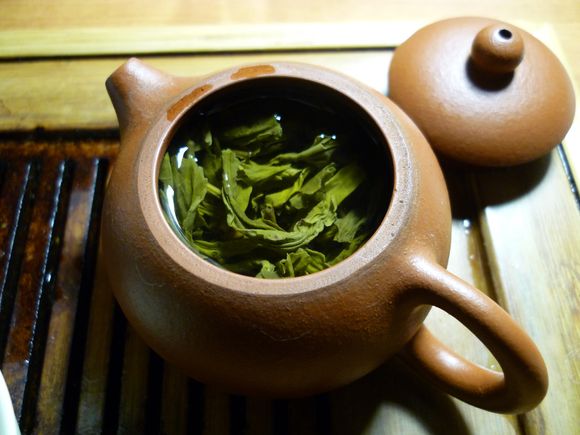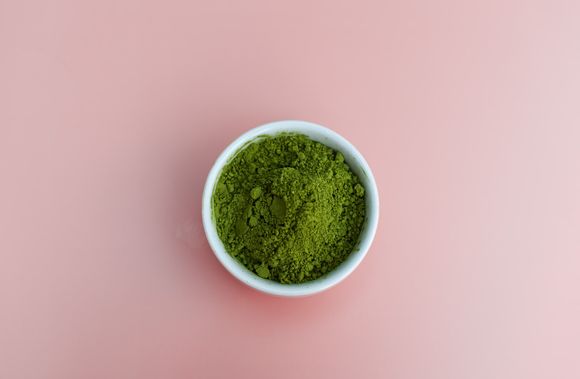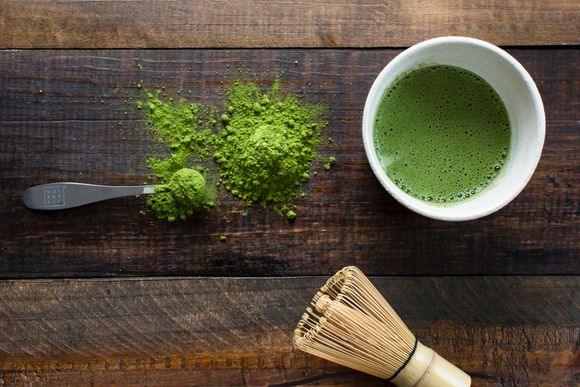Author: Rositsa Tashkova, Master of Molecular Biology and Microbiology
Tea is the most common drink after water. Tea, which is prepared from the leaves of the Camellia sinensis plant is 3 types: green, oolong and black - depending on the degree of oxidation of the leaves.
Black tea is consumed much more often than green tea - about 78% of consumption falls on it, and only 20% - on the green.
The less oxidized the leaves, the more valuable substances are preserved in tea, so green tea is much more healthy than black tea. It is extremely rich in antioxidants and the polyphenol epigallocatechin-3-gallate (EGCG) - the most common catechin in tea, which holds most of its healthy qualities.
Green tea is traditionally used in China and India, but has already gained great popularity worldwide and is easily accessible. Epigalloatechin gallate is also used as an ingredient in a number of dietary supplements.
In this article, we will consider what are the health benefits of green tea.
How to prepare the best cup of green tea
Before we focus on the health benefits of green tea, let's first learn how to properly prepare it.

If you use green tea leafs (not bag tea) - the required amount is only one pinch for 250 ml of hot water, no more.
After the water boils, allow it to cool for 2 minutes, then pour it over the tea. Otherwise the catechines may break down by the boiling water. If you do not like it bitter, let it soak for just 2 minutes.
Add lemon to the tea - this will improve the absorption of useful substances. But do not add milk.
Green tea for a healthy heart
According to a 2016 study among the Chinese population, even low consumption of green tea is associated with a severely reduced risk of atrial fibrillation [ref.1].
In addition, it was found that the long-term daily use (6 months) of black or green tea lowers blood pressure. The effect of green tea is even greater. This is probably due to the catechins contained in it, as they dilate blood vessels and therefore - lower the pressure.
Green tea can also lower bad cholesterol (LDL), which also lowers the risk of developing cardiovascular disease due to atherosclerosis - people who regularly drink green tea have a 30% lower risk of death caused by cardiovascular disease (heart attack and stroke). [ref.2]
Green tea can also have a beneficial effect in arrhythmia sufferers.
Read more in the article .
Green tea protects your brain
One of the most important active compounds in green tea - epigallocatechin-3-gallate (EGCG) is attributed to the anti-inflammatory and neuroprotective properties of this plant. EGCG inhibits the production of inflammatory mediators such as TNF-α, IL-1β and IL-6 (interleukins) and exerts protection on the nervous system.
Green tea has anti-inflammatory effects that can protect the CNS from neurodegenerative diseases such as multiple sclerosis. In addition, it regulates energy consumption in the body, which can relieve fatigue - a common symptom of multiple sclerosis.
More about multiple sclerosis read in the article 17 affordable herbs to help sufferers of multiple sclerosis.
Green tea may help in autoimmune disease
Green tea has been found to alleviate the symptoms of certain autoimmune diseases [ref.3] - studies have been conducted in animal models of rheumatoid arthritis and Sjogren's syndrome, and the results are encouraging.
Probably this is due to the immunosuppressive properties of the substance EGCG in green tea. [ref.4]

According to a study published in Nature, consuming green tea can help sufferers of autoimmune uveitis - inflammation and edema that can damage the tissues of the eye and lead to impaired vision or blindness. [ref.5]
Read more on the topic in the article .
Green tea may increase your concentration and energy
Green tea contains both a little caffeine and the amino acid L-theanine, which have a positive influence on brain functions. The two substances have a synergistic effect and complement each other, leading to a moderate, stable and smooth peak of energy.
Green tea is a strong antioxidant
Antioxidants are substances that suppress oxidation and neutralize the negative effects of free radicals. Polyphenols are the most common antioxidants found in plant food and beverages.
As mentioned, green tea is very rich in polyphenols and the EGCG catechin. Catechin affects the molecular mechanisms involved in angiogenesis, the breakdown of extracellular matrix, the regulation of cell death and multidrug resistance in cancers and related diseases.
Read more about antioxidants in the article What are free .

Anti-cancer properties ofgreen tea
Chronic inflammation is one of the causes of the development of cancers, and the antioxidants contained in green tea can offer some protection against it.
To take full advantage of the antioxidants contained in green tea, it may be a good idea not to add milk to the tea, as it can reduce their absorption in the body.
Various clinical studies have revealed that green tea can protect against certain cancers, and EGCG has been found to inhibit the incidence of tumors in various organs: liver, stomach, skin, lung, mammary gland, prostate and colon. [ref.6]
Green tea can be useful independently or in combination with conventional therapeutic means to stop the development of the tumor and / or treat malignancies in humans.
Read more in the article .
Green tea may help bad breath
Green tea has shown antibacterial activity against some bacteria: Porphyromonas gingivalis, Prevotella intermedia and Prevotella nigrescens in laboratory conditions. This makes it potentially useful for therapy for certain conditions such as gum inflammation, gingivitis and halitosis (bad breath), for example.
Read more in the article .

Green tea may prevent diabetes
According to a 2009 overview [ref.7] looking at the results of 7 studies and over 280,000 people, tea consumption seems to lower the risk of developing type 2 diabetes. The same goes for regular and decaffeinated coffee.
Read more about diabetes in the article .
Does green tea help for weight loss?
According to some research, green tea can help reduce body fat and lose weight, possibly due to accelerating metabolism.
A study of 240 obese people shows that green tea, rich in catechines, leads to a decrease in body fat, blood pressure and bad cholesterol (LDL). [ref.8]
Read more in the article .
Side effects of green tea and drug interactions
It is important to keep in mind that green tea has blood-thinning properties and it is not advisable to take it together with medications that have the same effect - anticoagulants and antiaggregants, such as aspirin, warfarin and others.
Taking green tea with other stimulants or coffee can lead to insomnia, increased blood pressure, anxiety, rapid pulse, nausea.
Green tea has a number of healthy benefits. It keeps to the optimum extent the substances we need for better tone. Green tea owes most of its effects to the antioxidant epigallocatechin-3-gallate (EGCG), which is also contained in a number of dietary supplements and preparations. The drink is an excellent substitute for coffee, providing a smoother and pleasant rush of energy.









